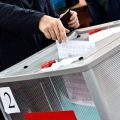IBM, together with power grid operators TenneT, Terna and Swissgrid, developed the Equigy blockchain platform, with the helpwhich users of electric vehicles will be able to sell excessive "green" energy.
IBM has created a kind of “blockchain consortium” withTenneT energy system operators operating in the Netherlands and Germany, the Italian organization Terna and the Swiss company Swissgrid. The Hyperledger Fabric protocol will transfer data between consumers and network operators, as well as track “energy transactions” between users and network operators. Testing of the project will last until the end of the year.
According to the developers, the blockchain will provideeffective interaction of owners of electric vehicles and home batteries with network operators. The difficulty of generating electricity from renewable energy sources lies in the fact that it is impossible to predict how much solar or wind energy will be produced in the near future. Another situation is with coal and gas power plants, when, if necessary, energy production can be accelerated and increased.
Energy, Environment andUtility Services at IBM Leo Dijkstra believes that consumers can solve this problem by offering their facilities and thereby stabilizing the energy market. Users will be able to sell electricity from their electric vehicles and home batteries during a period of low electricity production, and during a period of excess electricity their charging will be cheap.
Typically, the main players in the electricity marketare large companies, power plants and industrial installations. However, now ordinary people can become its participants, and the blockchain “democratizes” this industry. Francisco Carranza, managing director of Nissan Energy, believes that the Equigy platform will allow full control over the use and storage of energy from electric vehicles.
Co-Chair of the International Association fordevelopment of reliable applications based on the blockchain (INATBA) Irene Adamski believes that the Equigy initiative will allow optimal use of reserve capacities, which will balance the demand and supply of electricity. Successful testing of a project in the Netherlands, Germany, Switzerland and Italy could be a “starting point” for expansion across the continent.
Of particular interest to Equigy is Denmark, whichproduces large amounts of renewable energy. According to Adamsky, the difficulty lies in introducing the latest technology into legacy systems, rather than just demonstrating proof of concept, so regulatory support is needed to decentralize the existing system.
Blockchain is becoming more popular inenergy sector. Last month, French green energy company ekWateur and Australian Power Ledger introduced a platform for distributing electricity from renewable sources. In addition, a year ago, Toyota Motor Corporation also planned to test the blockchain-based electricity trading system.
</p></p>

